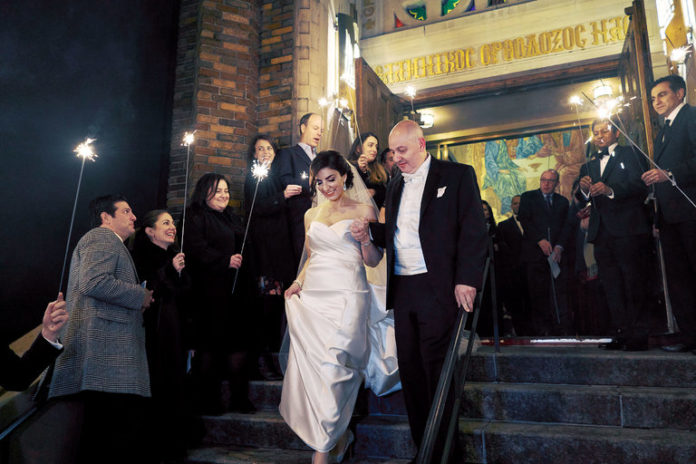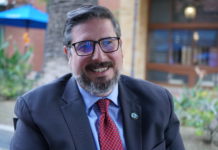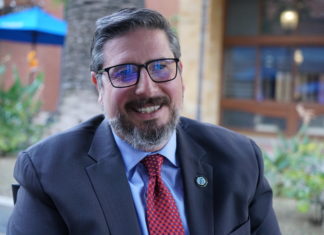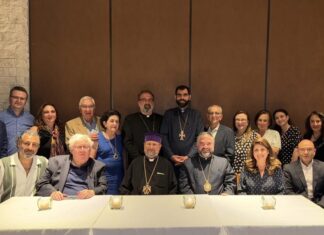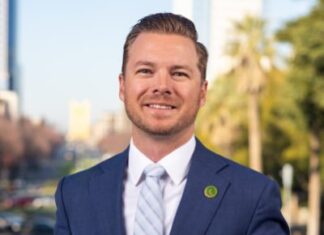By Tammy La Gorce
NEW YORK (New York Times) — Elena Sarkissian had plenty of time to figure out whether she wanted to marry Demetrios Orfanoudis before their wedding on January 21. First came five years of long-distance dating. Then, just before the wedding itself, came an unexpected stretch of time with nothing to do but sit and think.
“I ended up spending 45 minutes circling the cathedral,” said Sarkissian, 44, a real estate broker with Douglas Elliman in Manhattan. Alone in the back seat of a rented Bentley in her Anna Maier couture wedding gown, with only the car’s driver for company, “I had no phone, and no watch,” she said. “And I knew we were running more and more late for the ceremony. It was such a stress. But we just kept circling.”
Sarkissian was not falling prey to cold feet. What she was experiencing instead was the pandemonium of Manhattan in the grip of the Women’s March, held one day after President Trump’s inauguration, a protest that drew hundreds of thousands, choking the city with traffic.
About 60 of the 150 guests invited to Ms. Sarkissian and Mr. Orfanoudis’s wedding had gotten stuck on a rented bus, inching through the protest to get them to the Cathedral of the Holy Trinity on East 74th Street for the 4 p.m. wedding. The bus, carrying friends and family, who came from as far as Athens and who were staying at a Midtown hotel, did not make it for 40 minutes or more.
Sarkissian knew she couldn’t start the wedding with nearly half her guests in transit. And so she circled. And as she did, she didn’t feel anything approximating jitters. She felt something else entirely: the kind of eagerness born of waiting for years to seal the deal on a romance in which everything went right.



